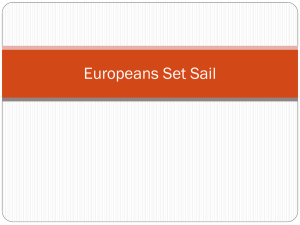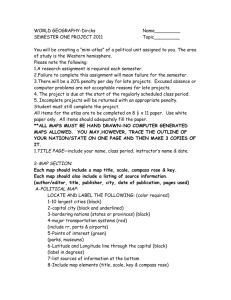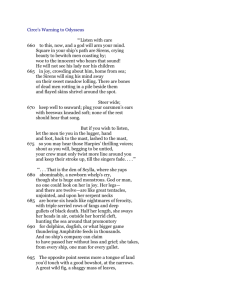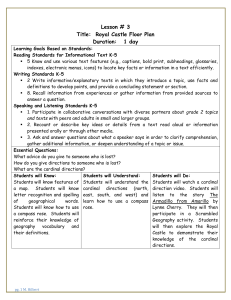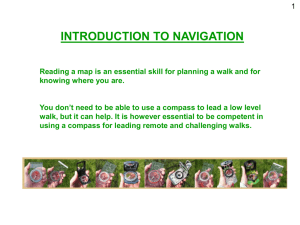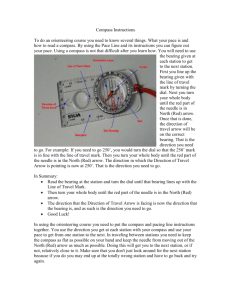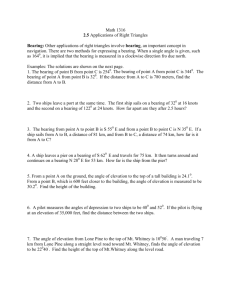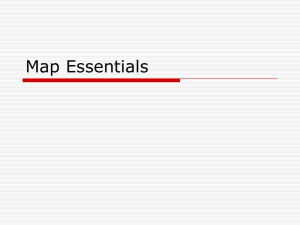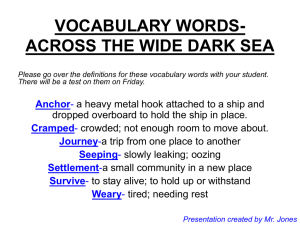Charting Your Course for Leadership
advertisement
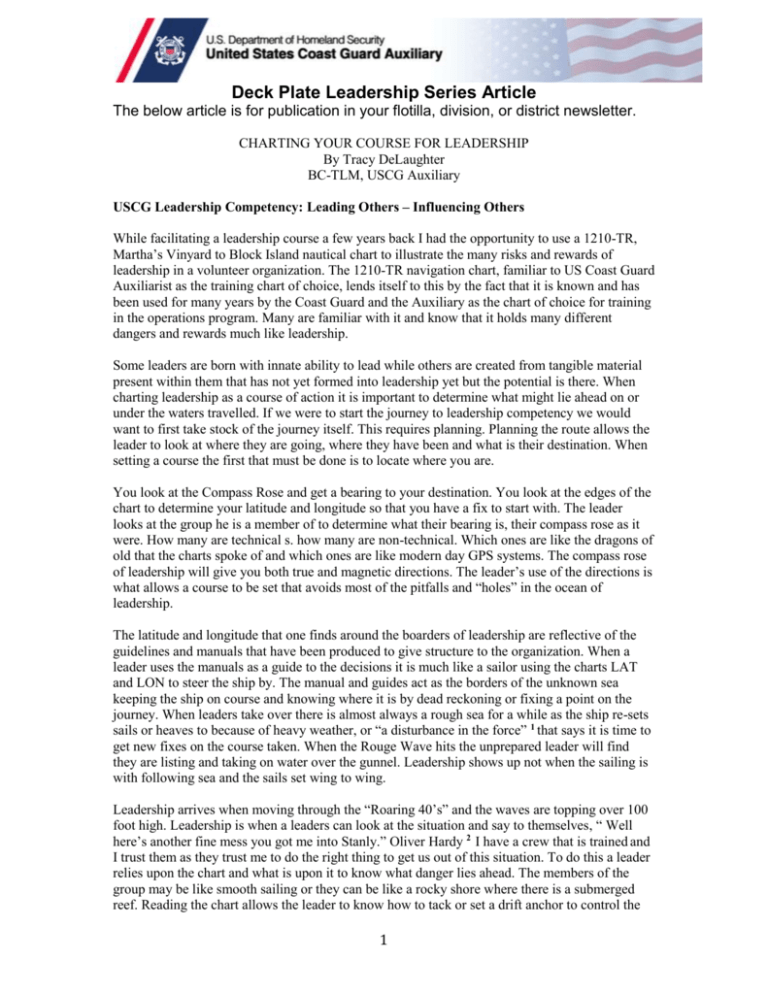
Deck Plate Leadership Series Article The below article is for publication in your flotilla, division, or district newsletter. CHARTING YOUR COURSE FOR LEADERSHIP By Tracy DeLaughter BC-TLM, USCG Auxiliary USCG Leadership Competency: Leading Others – Influencing Others While facilitating a leadership course a few years back I had the opportunity to use a 1210-TR, Martha’s Vinyard to Block Island nautical chart to illustrate the many risks and rewards of leadership in a volunteer organization. The 1210-TR navigation chart, familiar to US Coast Guard Auxiliarist as the training chart of choice, lends itself to this by the fact that it is known and has been used for many years by the Coast Guard and the Auxiliary as the chart of choice for training in the operations program. Many are familiar with it and know that it holds many different dangers and rewards much like leadership. Some leaders are born with innate ability to lead while others are created from tangible material present within them that has not yet formed into leadership yet but the potential is there. When charting leadership as a course of action it is important to determine what might lie ahead on or under the waters travelled. If we were to start the journey to leadership competency we would want to first take stock of the journey itself. This requires planning. Planning the route allows the leader to look at where they are going, where they have been and what is their destination. When setting a course the first that must be done is to locate where you are. You look at the Compass Rose and get a bearing to your destination. You look at the edges of the chart to determine your latitude and longitude so that you have a fix to start with. The leader looks at the group he is a member of to determine what their bearing is, their compass rose as it were. How many are technical s. how many are non-technical. Which ones are like the dragons of old that the charts spoke of and which ones are like modern day GPS systems. The compass rose of leadership will give you both true and magnetic directions. The leader’s use of the directions is what allows a course to be set that avoids most of the pitfalls and “holes” in the ocean of leadership. The latitude and longitude that one finds around the boarders of leadership are reflective of the guidelines and manuals that have been produced to give structure to the organization. When a leader uses the manuals as a guide to the decisions it is much like a sailor using the charts LAT and LON to steer the ship by. The manual and guides act as the borders of the unknown sea keeping the ship on course and knowing where it is by dead reckoning or fixing a point on the journey. When leaders take over there is almost always a rough sea for a while as the ship re-sets sails or heaves to because of heavy weather, or “a disturbance in the force” 1 that says it is time to get new fixes on the course taken. When the Rouge Wave hits the unprepared leader will find they are listing and taking on water over the gunnel. Leadership shows up not when the sailing is with following sea and the sails set wing to wing. Leadership arrives when moving through the “Roaring 40’s” and the waves are topping over 100 foot high. Leadership is when a leaders can look at the situation and say to themselves, “ Well here’s another fine mess you got me into Stanly.” Oliver Hardy 2 I have a crew that is trained and I trust them as they trust me to do the right thing to get us out of this situation. To do this a leader relies upon the chart and what is upon it to know what danger lies ahead. The members of the group may be like smooth sailing or they can be like a rocky shore where there is a submerged reef. Reading the chart allows the leader to know how to tack or set a drift anchor to control the 1 Deck Plate Leadership Series Article The below article is for publication in your flotilla, division, or district newsletter. speed to keep the ship safe while maintaining the set course and bearing to achieve the goals of the crew. All you need to know about leadership can be found on a chart, if you know how to read it. References: 1- Star Wars- George Lucas 1977 2- Putting Pants on Phillip- Hal Roach Studios- 1927 2

